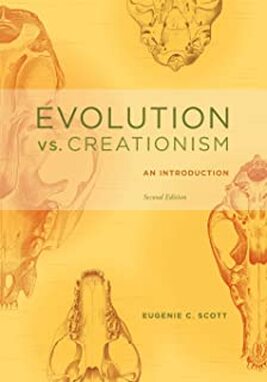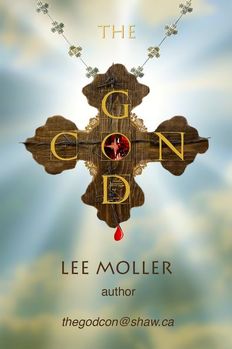 I finally got around to reading this book. It has been on my to-read list for quite some time. Part of the reason I put it off is that I felt I knew the science and the scientific philosophy fairly well (I did) but the book looks at many other aspects of the battle, including: religious perspectives, the media, politics, education and so on. The font is small, the leading tight, and the pages large, so this is a longer read than you might expect. Part of the reason for its length is that major portions consist of chunks of pro-creationism texts, followed by contrary science positions. Ironically, one of the concerns about creationism is that it survives on the "balance" argument. That is, you are not "balanced" if you do not present "scientific creationism" along side the science of evolution with equal weight in the classroom or the media. And yet, this book goes to some lengths to show the other side. Of course, doing so is necessary in an analysis such as this. However, I often found myself reading something I thought was wrong, only to realize it was the opinion of a creationist, not the author, and is rebutted in the following section. I read this book to hone my understanding of the arguments, especially the stupid arguments that one can expect from the "other side". I was especially interested in ID (Intelligent Design) arguments. The last BC skeptic's meeting was a debate between a creationist (Richard Peachy, a part-time science teacher) and an actual science teacher (Scott Goodman). The actual science teacher won. However the audience was absolutely stacked and packed with religion believers hocking tapes, books, and such, about how the Earth is only 6,000 years old. They probably saw the argument in a different light. And they got to flog their propaganda. We were used. The opening chapters of the book get into the basics of scientific philosophy and provide a primer on evolution. While not mentioned in the book, it is worth noting that the oft used tag line for evolution, "Survival of the Fittest", is a meaningless tautology. Add the word "offspring" and it works. Consider these four terms and rank them in importance: Facts, Laws, Theories, and Hypotheses. In fact, this order is the usual one assigned by lay people, with Facts most important, and Hypotheses least important. Scientists rank them from most to least important like this: Theories, Laws, Hypotheses and Facts. The next chapter is a primer on the history of religion and religion's perspectives on evolution. There are actually quite a lot of them, running from "God did it all in a trice" to " The science is true (e.g .: the Earth is 4.5ish billion years old) but god is always invisibly tinkering and setting things in motion". There are at least a half dozen different flavors of creationism and religious evolutionism. Trying to address them all is a cosmic game of Whack-A-Mole. And like the mythical Hydra, if you kill a mole, two slightly different moles pop up in its place. The US is unique in that it is one country with 50 different policies on science and evolution education. If you are educated in Kentucky, you might not get exposed to evolution at all until you reach college and decide to take an applicable course. And Kentucky is not unique. The BC skeptics once had an ex-cult-member and lawyer address the group. I chatted with him after the fact and was surprised to learn he heard of evolution for the very first time when he was 30! Chapter five digs into the fight to eliminate evolutionary teaching from science classrooms. Unbelievably, this battle continues to this day. The Scopes trial is well known from movies and plays. It was the trial of the century at the time. Scopes himself was actually a sacrificial volunteer, chosen because he had few ties to the community, and could thus bear excommunication from it. He was chosen by the ACLU to challenge anti-evolution laws. The Tennessee Supreme Court ultimately reversed the Scopes conviction, which also killed the ACLU's attempts to kill the law (no conviction means no avenue to appeal). The Monkey Trial only made things worse. States doubled down on the issue. New and more subtle attacks on evolution were devised. The language was twisted too. Think about the phrase "scientific creationism", an oxymoron if ever there was one. It was followed by "Intelligent Design (ID)". Most of these approaches failed, so creationists fell back on "equal time". That is, teach creationism along side evolution as an alternative. That failed (it violates the Constitution) and so they fell back on warning labels in text books, wrongly claiming the evolution is only a "theory". A word on a word: Theory. When Perry Mason has a theory, it means he thinks he might be able to convince a court that his view should prevail. Here, "theory" and "opinion/guess" mean the same thing. In science, a "theory" is a broad perspective that ties together many aspects of data, observation, branches of science, and, usually, mathematics. General Relativity, Newtonian Mechanics, and Evolution are such theories. And they are all true (with some caveats). Intelligent Design (ID) is the best that creationists have to offer at the moment, and the book goes into detail on it over a few chapters. Intelligent Design, and its hand-maiden Irreducible Complexity, are subtle arguments. In Darwin's day, the argument was: What use is half an eye? Even Darwin knew the answer to that: Any eye is better than none at all. The common example today of ID is the flagellum. This is the twirly thing at that back of some bacteria, making them mobile. But clever scientists have though of step-wise ways of getting to that too. Intelligent Design was tested in Kitzmiller versus Dover. Dover is a town in Pennsylvania. Dover lost and ID was deemed thinly veiled creationism. Creationism is still fighting and still losing. When all else fails, creationists fall back on "balance", or "equal time". This is fine in a political argument, but it is the kiss if intellectual death in a scientific one. Scientists, and people in general, must be able to discard discredited ideas, or we will be debating them forever. The book goes on with chapters on the legal, educational, public opinion, and scientific issues associated with creationism, using a collection of writings from various authors. They present creationist arguments followed by science's rebuttals. This is a very detailed book. It focuses to a degree on education since the author is the Executive Director of the National Center for Science Education. If you want to understand creationism issues, you should have this book in your library. Most of the counter arguments to evolution come from the Discovery Institute. It claims that it is scientific in its criticisms, but they do no research, publish no papers, gather no evidence, and spend all their time trying to shoehorn biblical rubbish into the curriculum of US schools. One last word about Creationism and the Law. Judges are not well equipped to make decisions on issues of science. A group of judges asked Robert Park, a well respected physicist, to tell them the difference between BS science (pseudoscience) and real science. I have just acquired a copy of his book on the subject: Voodoo Science. I shall comment on it soon. Mr. Park wrote an article for Chronicle of Higher Education (2002) that listed seven signs, or "tells", of bogus science and gave it to them. This list was used, and still is, as an aid judges. I published a list of sixteen such warning signs in the BC Skeptics newsletter in 1989. My list has now worked its way into courseware curricula around the world. My list included all of those expressed in Mr. Parks list. NB: I am not suggesting he stole my list, only that I got there first by 13 years. More on "The List" to come. Regardless, I was chuffed to see that parts of "my list" have made it into US jurisprudence. The final chapter deals with what people believe around the world. I am happy to report that Scandinavia (Iceland, Denmark, Sweden and Norway) are four of the top seven countries that believe in evolution. Canada was not surveyed. Turkey beat out the USA for dead last. As I mentioned, this is a long a detailed read. Some of it is hard to read. I refer mostly to the cut-and-paste discussions from creationists. Their convoluted logic makes my brain hurt. It is also a must-have reference book if you want to take the subject seriously.
0 Comments
Leave a Reply. |
AuthorLee Moller is a life-long skeptic and atheist and the author of The God Con. Archives
May 2024
Categories
All
|

 RSS Feed
RSS Feed